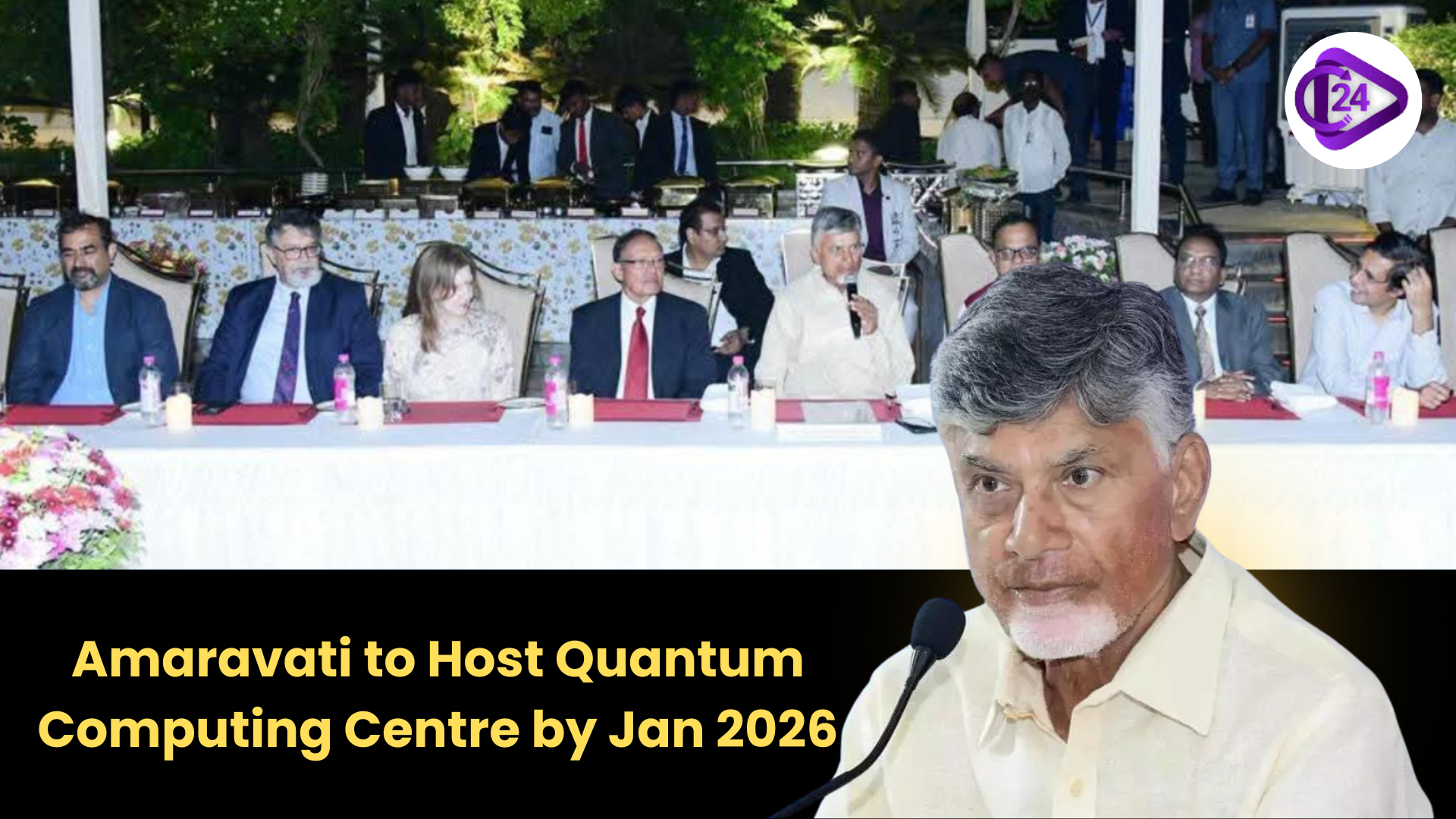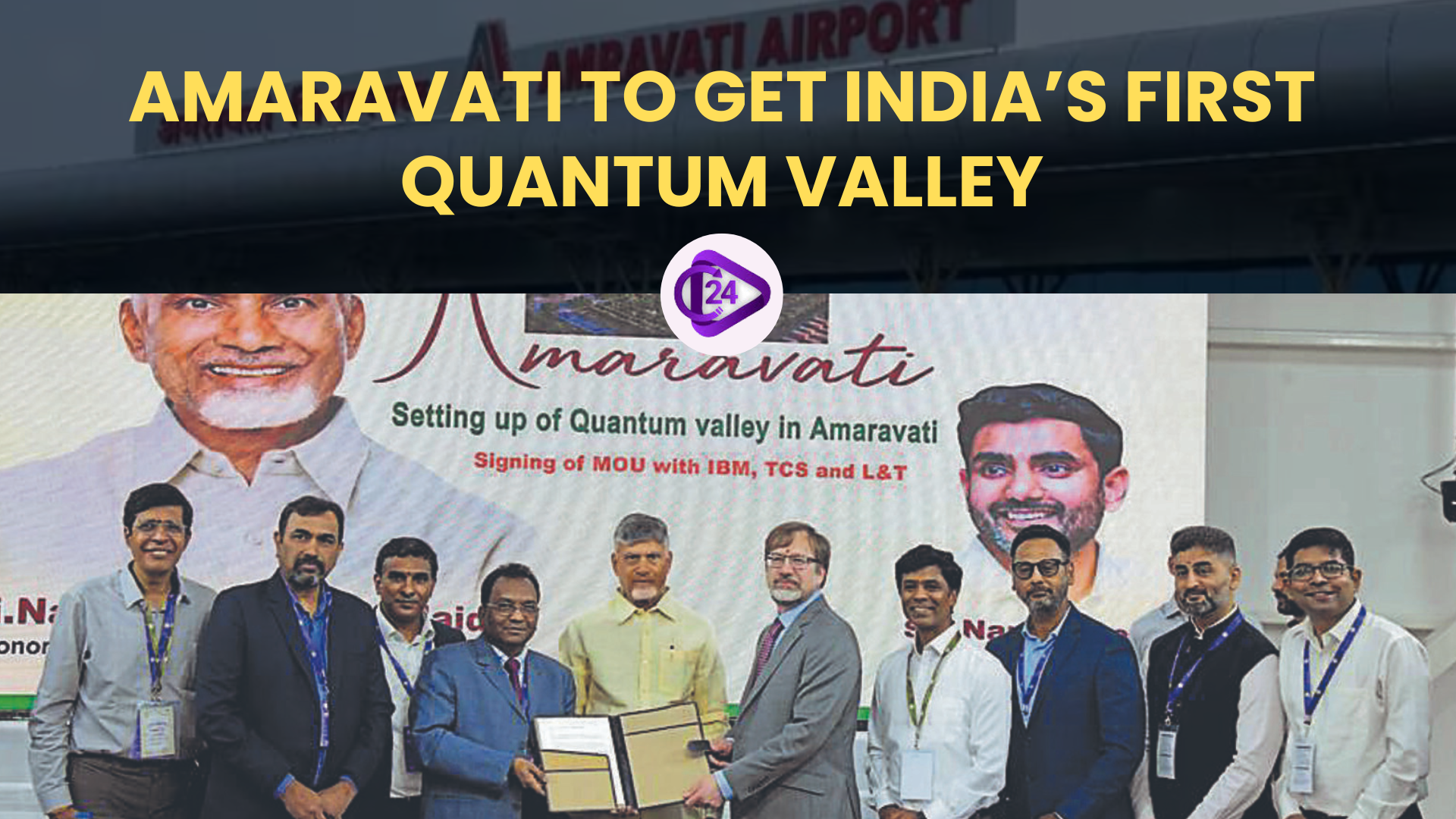
Andhra Pradesh Chief Minister N. Chandrababu Naidu has declared that the Quantum Computing Centre at Amaravati will come on stream on January 1,2026. The project will have significant tech corporations such as IBM, Tata Consultancy Services and Larsen and Toubro backing it to create a quantum valley like the Silicon Valley in the U.S. The plan of the state government is to generate 100 use cases by 2026 (August) and make Andhra Pradesh one of the leading countries in the global Quantum-AI movement.
Context
-
Andhra Pradesh is starting a Quantum Computing Centre before January 2026 with a view to forming a “Quantum Valley” in Amaravati sponsored by the biggest technology firms.
-
To be one of the core participants in the international Quantum-AI movement, the state intends to develop 100 use cases by the middle of 2026.
Key Points
-
Timeline of Quantum Computing Centre
-
The Amaravati centre of Quantum Computing will go live as of January 1, 2026.
-
This plan will target the creation of a cultural identity, that is, a “Quantum Valley” like the renowned U.S. Silicon Valley.
-
-
Corporate Forecast:
-
IBM, Tata Consultancy Services (TCS) and Larsen & Toubro (L&T) will support the project.
-
-
100 Use cases Goal:
-
Andhra Pradesh targets to create 100 components of the 100 use case by August 15, 2026, which shows the desire of the state to become a strong member of the global Quantum-AI trend.
-
-
Past Technological contributions:
-
Naidu first pointed to his prior achievement when he turned the HITEC City in Hyderabad into a global information technology hub during the 1990s.
-
-
WhatsApp Governance:
-
Naidu presented that 100% of the services delivered by the state government would soon be in the form of the WhatsApp platform in a bid to have better governance and efficiency.
-
-
Central Government support:
-
Naidu also applauded the far-sighted vision of Prime Minister Narendra Modi and explained that the Indian government was giving all possible encouragement to the endeavours in Andhra Pradesh in making progress in the quantum revolution.
-
What is Quantum Computing?
-
Quantum computing is a state-of-the-art discipline in the field of computers, in which the principles of quantum theory are applied to do atomic-levels and subatomic-levels computations.
-
In contrast to classical computers which operate with information in the form of binary bits (0 or 1), quantum computers make use of the quantum bits (qubits).
-
The most outstanding characteristic of ubiquitous is the ability to represent many states, which is possible due to such effects as superposition and entanglement.
Key features of quantum computing
-
Superposition:
-
Unlike a classical bit, qubit can be 0 and 1 simultaneously. It is what allows quantum computers to handle data in parallel, in amounts that are gigantic by current standards.
-
-
Entanglement:
-
Once the qubits are entangled, the state of the qubit has direct influence on the state of another qubit, despite the space between them being wide. This enables greater speed and more complex relations in calculation.
-
-
Interference:
-
With the capability of interference, quantum computers are more efficient when it comes to solving certain given problems as compared to regular computers because correct answers can be worked on and enhanced to effective state and a wrong solution can be countered.
-
Conclusion
Quantum Computing Centre in Amaravati is another giant step of the Andhra Pradesh state in quantum computing and artificial intelligence. Supporting all the innovations, the global tech giants and the interest of the Indian government in these cutting-edge technologies should see its state as a leader by 2026.



 Malaria’s New Frontlines: Vaccines, Innovation, and the Indian Endgame
Malaria’s New Frontlines: Vaccines, Innovation, and the Indian Endgame India-NASA Earth Observation Partnership: NISAR Satellite Launch
India-NASA Earth Observation Partnership: NISAR Satellite Launch India’s Hydrogen-Powered Train: A Milestone in Green Transportation
India’s Hydrogen-Powered Train: A Milestone in Green Transportation NISAR: First NASA-ISRO Joint Earth Observation Satellite to Launch on July 30
NISAR: First NASA-ISRO Joint Earth Observation Satellite to Launch on July 30 Shubhanshu Shukla landed safely back to Earth after an 18-day Axiom Mission 4
Shubhanshu Shukla landed safely back to Earth after an 18-day Axiom Mission 4 Google Unveils AI Innovations to Make Agri Practices More Data-Driven, Efficient
Google Unveils AI Innovations to Make Agri Practices More Data-Driven, Efficient First Ancient Egyptian Genome Sequenced: 4,500-Year-Old DNA Offers Clues to Ancestry and Preservatio
First Ancient Egyptian Genome Sequenced: 4,500-Year-Old DNA Offers Clues to Ancestry and Preservatio Amaravati to Host India’s First Quantum Computing Valley
Amaravati to Host India’s First Quantum Computing Valley India Returns to Space: Shubhanshu Shukla Aboards ISS After 41 Years
India Returns to Space: Shubhanshu Shukla Aboards ISS After 41 Years






